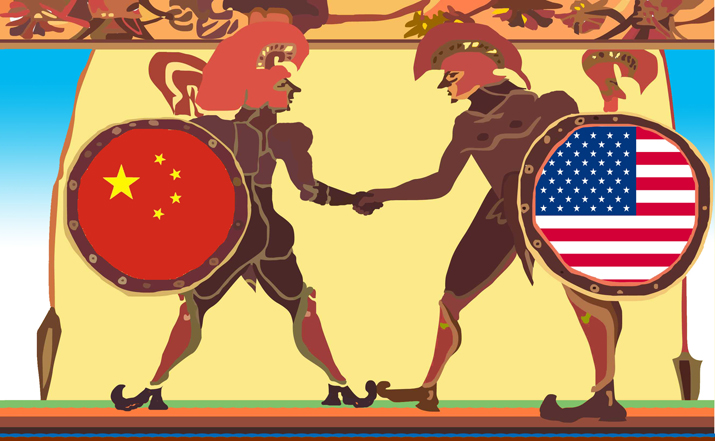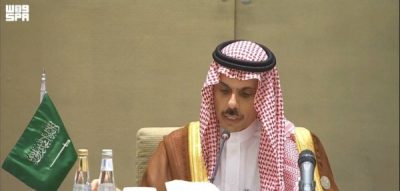“In the fight against the pandemic, WHO is strikingly uncritical of China. Like other UN organs, it is under the growing influence of the People’s Republic. This poses a threat to the whole world,” according to Stefan Schultz in his article titled, “Growing Chinese influence on UN organs”, published April 19, 2020. What Schultz however did not clarify is whether, for real by “threat to the whole world” he meant threat to interest of the few in West and Europe that America represents. From the submissions in the article, it is now clear where US President Donald Trump and his believers in the West, Europe and outside of those two continents get their elements screaming against China from. But is this enough to believe China is as bad as painted? America’s policy had been fingered in the conflicts, destructions and genocides in particularly the Middle East nations of Syria, Afghanistan, Iraq, and for decades, beginning from 1949, has deprived Palestine of its rights to nationhood whereas preferring Israel as more legitimate to self protection than Gaza. There have been more. Many of these are available for consideration as the world moves to the next level, which is key issue in this article by Stefan Schultz being republished by The DEFENDER. Excerpts:
“At the international level, democracy has recently suffered as a model of government…An even stronger argument for the Chinese system is that it promises more economic participation worldwide. Chinese state banks, for example, grant loans worldwide – without tying them to democratic values, like their western counterparts.”
One big lesson from the corona crisis could be that it may be dangerous that China has gained so much power over international institutions. Dangerous for every single person on this planet.
A growing body of evidence suggests that the corona pandemic, including the impending global economic crisis, was not prevented because an important United Nations organ, the World Health Organization (WHO), temporarily prioritized China’s interest in political face protection instead of its own role investigate: protect the global community as best as possible from health risks.
In early 2020, when a pandemic could still have been averted, high-ranking Chinese health authorities apparently hindered initial analyzes of the coronavirus and censored the relatively early reporting of a possible new Sars virus. The WHO, whose job it is to uncover such serious cover-ups, only repeated the Chinese claims until mid-January that it was not yet clear whether the virus would be transmitted from person to person. As early as December 31, 2019, she was warned that the new virus appeared to be very similar to the Sars virus.
The WHO started its own investigations relatively late. To date, she has not criticized Chinese information policy. Instead, it is full of praise for China’s rigorous lockdowns.
The WHO pro-Beijing course shouldn’t be a coincidence. The People’s Republic has systematically expanded its influence on the United Nations agency for almost a decade and a half.
Growing influence for a decade and a half
On November 9, 2006, not long after the Communist Party had been criticized for partially covering up an epidemic (Sars 2003), medical doctor Margaret Chan, who was considered to be pro-Chinese, was appointed the new WHO chief. The then President of the United States, George W. Bush, tacitly accepted the personnel as most of the then heads of government in Europe. The same thing happened five years later with Chan’s contract extension: Neither US President Barack Obama nor in the EU raised any serious protest.
Chan, who hired numerous China-friendly bureaucrats during her ten-year tenure, was finally replaced in 2017 by Beijing’s next preferred candidate, the Ethiopian Tedros Adhanom Ghebreyesus. Since then, this has further expanded China’s influence on the WHO. Most recently, he even supported China’s idea of a “medical silk road”.
It is no coincidence that the West gave the Chinese so much influence over a central UN organization. Politicians in the United States and the EU have long pursued the “strategic engagement” approach to the People’s Republic. This means that actors are given responsibility in order to integrate them into the prevailing system – so that over time they develop into system-compliant partners.
Until well into the first half of the decade, many experts and heads of government held the thesis that China would become more democratic with increasing economic progress. Indeed, the incumbent President Xi Jinping is strengthening its autocratic structures – not only in their own country but worldwide. The WHO is just one of many international organizations that are now under Chinese leadership or under growing Chinese influence.
Democratically dominated is not immediately democratic
At the international level, democracy has recently suffered as a model of government. And not just because the Communist Party is making every effort to present its own government system as more efficient than Western democracies – for example, by building a completely new hospital in ten days in the fight against the corona pandemic.
An even stronger argument for the Chinese system is that it promises more economic participation worldwide. Chinese state banks, for example, grant loans worldwide – without tying them to democratic values, like their western counterparts.
The example of the United Nations also shows that democracy is also reaching its limits in matters of power. At the moment, democratic states often set the tone in the United Nations. But structurally, the United Nations is only partially democratic. Veto rights, for example, are still partly determined by whether states have nuclear weapons or not. Some developing countries are also quite rightly criticizing that their former colonial masters wanted to maintain some of their old privileges through global organizations.
The Chinese are likely to try to functionalize the United Nations as their influence grows – only under more autocratic circumstances. A way out against such a pax sinica could be a reform of the United Nations. The organizational network that comes closest to a world government would have to develop, become more democratic in its own structures if it wanted to further legitimize that democracy is the best form of government worldwide.
The network of power
In addition to the WHO, a current overview of the US magazine “Politico” lists four other Chinese-influenced UN organs:
The United Nations’ Food and Agriculture Organization has been led by former Chinese Vice Minister of Agriculture Qu Dongyu since 2019.
The International Telecommunication Union, a UN agency based in Geneva that defines the global technical standards for communication networks, has been headed by Zhao Houlin, a former employee of the Chinese Ministry of Telecommunications, since 2015. Zhao is said to be working for the Chinese company Huawei, among others.
The Department of Economic and Social Affairs, a United Nations body in the fight against global social inequality and against global warming, has been headed by former Chinese Vice Foreign Minister Liu Zhenmin since 2017.
Chinese lawyer Fang Liu has been the Secretary General of the International Civil Aviation Organization, a United Nations specialized agency based in Montreal, Canada, which develops international standards for civil aviation. She is currently accused of withholding information about the spread of the coronavirus from Taiwan. Taiwan is an important hub for Asian airspace. China has long regarded the Republic as a breakaway province.
Dangerous change in values
It is normal for China to expand its global influence. The People’s Republic is currently the world’s most populous country and the world’s second largest economy. Such a size is of course also to be reflected in the network of international institutions. Other world powers like the United States do the same – and they also sometimes use UN organizations to assert national interests.
However, the change in values that threatens to go hand in hand with the shift in power at international level appears problematic. Experts warn of dwindling protection of human rights, growing surveillance by the state, and increasing lack of transparency in far-reaching decisions.
The first signs of such a change in values already exist: In November 2019, for example, China implemented a controversial UN resolution on the fight against cybercrime. According to critics, it should ultimately serve to legitimize authoritarian states for their internet censorship. The corona pandemic is currently showing what devastating consequences can also be lacking in transparency.
The United States and the EU have so far had little to counter China’s growing international influence. In the corona crisis, the transfer of power seems to be accelerating. US President Donald Trump has just frozen the payment of US contributions to WHO. The Chinese have pledged an additional $ 20 million to fight the pandemic.
However, the problems in the international power structure go even deeper. Even if Western countries increased their payments to UN agencies and lobbied more for important items, they would probably no longer be able to suppress the growing influence of China alone.




